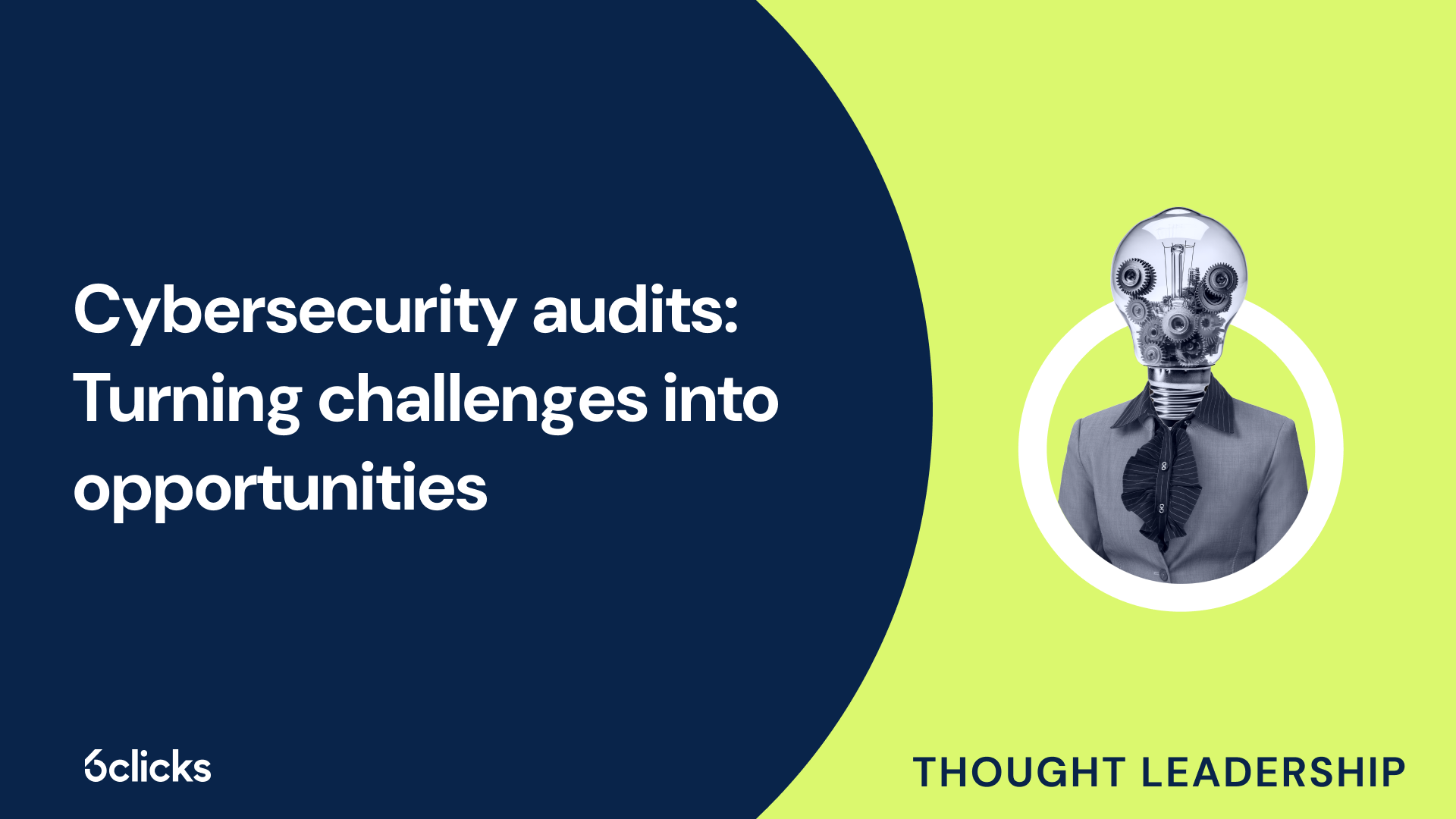
Cybersecurity audits are often seen as time-consuming, disruptive, and focused solely on meeting compliance requirements. But when conducted regularly and embraced as part of an organization’s culture, these audits can become far more than a checkbox exercise. By shifting the mindset from one-off assessments to continuous internal reviews, businesses can uncover hidden vulnerabilities, strengthen accountability, and build resilience against evolving threats. In this blog, we’ll explore how regular internal cybersecurity audits can turn challenges into opportunities, and why embedding them into your culture is the key to long-term trust and security.
Why cybersecurity audits matter more than ever
The threat landscape is evolving faster than most organizations can keep up. From sophisticated ransomware campaigns to insider threats and third-party vulnerabilities, businesses face mounting pressure to stay compliant and resilient. At the same time, regulators and stakeholders expect greater transparency, accountability, and proof that security controls actually work. This is where regular internal cybersecurity audits play a crucial role.
.png?width=1920&height=1080&name=6clicks%20blog%20-%20Cybersecurity%20audits%20(1).png)
Cybersecurity audits are systematic evaluations of an organization’s policies, procedures, and technical controls designed to assess their effectiveness in protecting information systems and data. By making cybersecurity audits a part of regular operations, organizations can:
-
Uncover hidden vulnerabilities – Identify risks before attackers or regulators do.
-
Validate security controls – Ensure alignment with frameworks like ISO 27001, NIST CSF, SOC 2, and more.
-
Build stakeholder confidence – Demonstrate a proactive security posture to customers, partners, and regulators.
-
Enable faster remediation – Detect weaknesses early and reduce the cost of fixing them.
-
Strengthen resilience – Turn lessons learned into ongoing improvements across people, processes, and technology.
This approach goes beyond checking compliance boxes once a year. Instead, it positions audits as an ongoing discipline woven into the fabric of governance, risk, and security. Moving from one-off compliance to a continuous audit culture helps organizations catch issues earlier, respond faster, and embed accountability at every level, transforming audits from a reactive burden into a proactive enabler of resilience and trust.
Characteristics of a strong audit culture
Building a culture around cybersecurity audits requires more than scheduling assessments. It involves embedding the right values, behaviors, and processes into the organization. Characteristics of a strong audit culture include:
-
Leadership commitment and tone at the top: Executives and boards set the standard by prioritizing cybersecurity audits, allocating resources, and communicating their importance. A culture of audit cannot exist without visible support from leadership.
-
Transparency and openness: Employees must feel encouraged to share risks and incidents without fear of blame. A transparent environment allows audits to surface real issues, leading to meaningful corrective actions rather than surface-level fixes.
-
Integration into daily processes: Audit readiness isn’t about scrambling once a year. Organizations with a strong culture build audit checkpoints into their workflows, making evidence collection, control validation, and reporting part of ongoing operations.
-
Continuous learning and improvement: Findings are treated as insights, not failures. Mature audit cultures use results to refine processes, close gaps, and strengthen resilience over time, creating a cycle of growth rather than punishment.
-
Collaboration across teams: Cybersecurity audits touch IT, compliance, operations, and business units. Effective cultures break down silos and encourage shared responsibility, ensuring that audits drive organization-wide accountability.
How technology empowers cybersecurity audits
Even with the right culture in place, cybersecurity audits can quickly overwhelm teams if they rely too heavily on manual processes. Gathering evidence, validating controls, and consolidating findings across multiple systems not only consumes time but also introduces human error. Technology changes this equation by streamlining and automating much of the heavy lifting, enabling internal audit functions to deliver deeper insights with less effort.

Platforms like 6clicks help organizations leverage the right technology to make cybersecurity audits more effective and efficient. By automating manual tasks with AI and unifying risk, compliance, and audit workflows within a single system, 6clicks enables teams to reduce effort, improve accuracy, and embed audit readiness into everyday operations. Here are key ways technology solutions like 6clicks help organizations optimize cybersecurity audits:
Built-in frameworks and content
Access thousands of global standards and regulations directly within the platform. Accelerate alignment with turnkey content such as risk and issue libraries, control sets, and audit or assessment templates aligned with ISO 27001, NIST CSF, and SOC 2, among others.

Automated evidence collection
Eliminate manual data gathering across systems by centralizing risk, compliance, and audit data in one platform. With full audit trails, version history, and automated reporting, 6clicks streamlines evidence collection and gives auditors and stakeholders a single source of truth.

AI-powered control mapping
Instantly align your security controls with ISO 27001, SOC 2, and other framework requirements using AI-powered mapping and gap analysis. Hailey AI identifies matching controls and requirements within seconds, supported by rationale and evidence, provides improvement suggestions, and helps you quickly determine compliance with highlighted gaps or missing objectives.

Continuous control monitoring
Automate control testing to validate control effectiveness and ensure ongoing compliance with security requirements. Get real-time alerts for configuration errors, detect anomalies before they escalate, and enable prompt remediation with built-in task assignment and tracking.

AI-powered audit responses
Fast-track audits by completing entire questionnaires with Hailey, which generates responses based on your previous assessments or uploaded documentation. This eliminates manual effort while enhancing accuracy and ensuring alignment with your actual policies, controls, and data.

Streamlined collaboration
Enable IT, compliance, and audit teams to work from the same platform, reducing duplication and strengthening accountability. Leaders gain real-time insights with dynamic dashboards and one-click reports, supporting faster, data-driven decision-making.
With unified data and processes, automation and AI, and ready-to-use content, 6clicks empowers organizations to simplify cybersecurity audits and build a sustainable audit culture.
Practical steps to embed cybersecurity audits into your culture
Shifting from one-off compliance exercises to a culture of continuous audit doesn’t happen overnight. It requires deliberate effort, leadership support, and the right tools. Here are practical steps organizations can take to embed cybersecurity audits into their day-to-day operations:

-
Start with regular internal audits – Conduct smaller, focused audits between external reviews to identify gaps early and normalize audit activity across the business.
-
Align audits with business goals – Tie audit objectives to broader risk management and business KPIs to show value beyond compliance.
-
Train and engage employees – Provide awareness sessions on audit readiness and the role of cybersecurity audits in building resilience, so employees view them as enablers, not disruptions.
-
Integrate audits into workflows – Use technology like 6clicks to automate evidence collection, streamline control validation, and reduce manual overhead, making audits less disruptive.
-
Treat findings as opportunities – Position audit results as actionable insights for continuous improvement, not as punishments, to encourage openness and transparency.
-
Measure and communicate progress – Use dashboards, metrics, and reports to demonstrate improvements over time and reinforce leadership support for audit culture.
Summary: From compliance to continuous confidence
Cybersecurity audits don’t need to be disruptive or seen as an annual burden. When conducted regularly and supported by the right culture and technology, they become a powerful tool for strengthening resilience and building trust.
Key takeaways include:
-
Cybersecurity audits uncover hidden risks, validate controls, and build stakeholder confidence.
-
A strong audit culture is defined by leadership support, transparency, collaboration, and continuous learning.
-
Technology like 6clicks makes audits faster, smarter, and less manual with pre-built content, automation and AI, and centralized data.
-
Embedding audits into regular operations transforms them from one-off compliance checks into drivers of ongoing resilience.
Organizations that embrace this approach turn audits into a strategic advantage — empowering teams to anticipate threats, meet compliance with confidence, and demonstrate accountability at every level.
Get started with smarter cybersecurity audits
See how AI-powered automation, unified workflows, and purpose-built tools from 6clicks can transform your audit processes and help you build a lasting audit culture across your organization.



